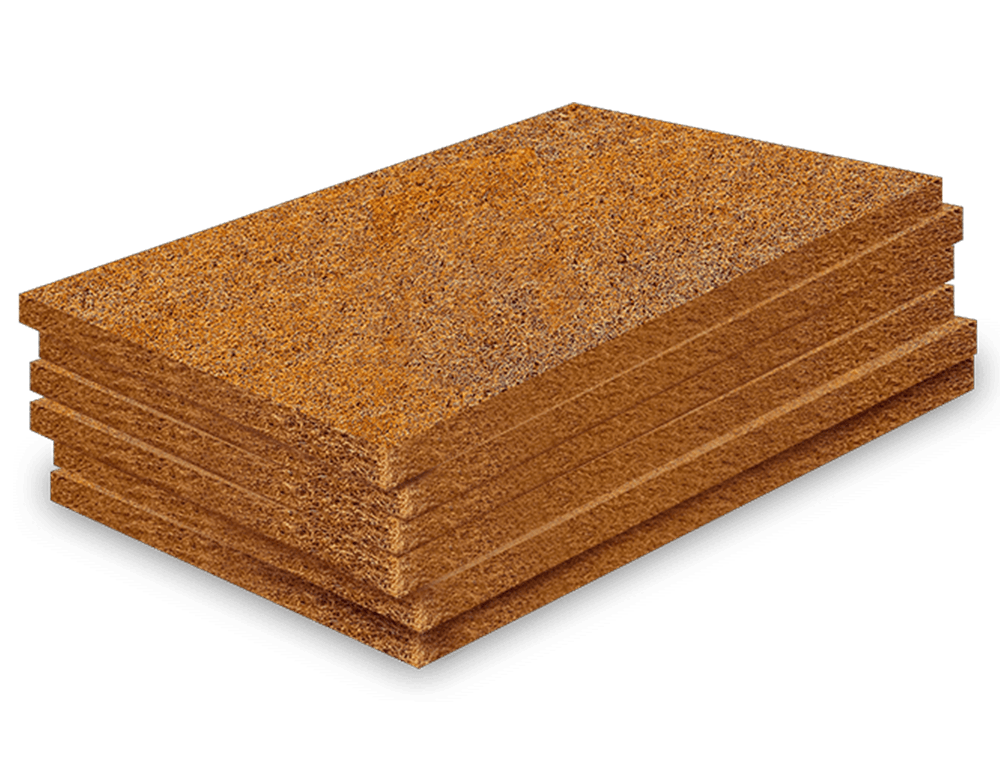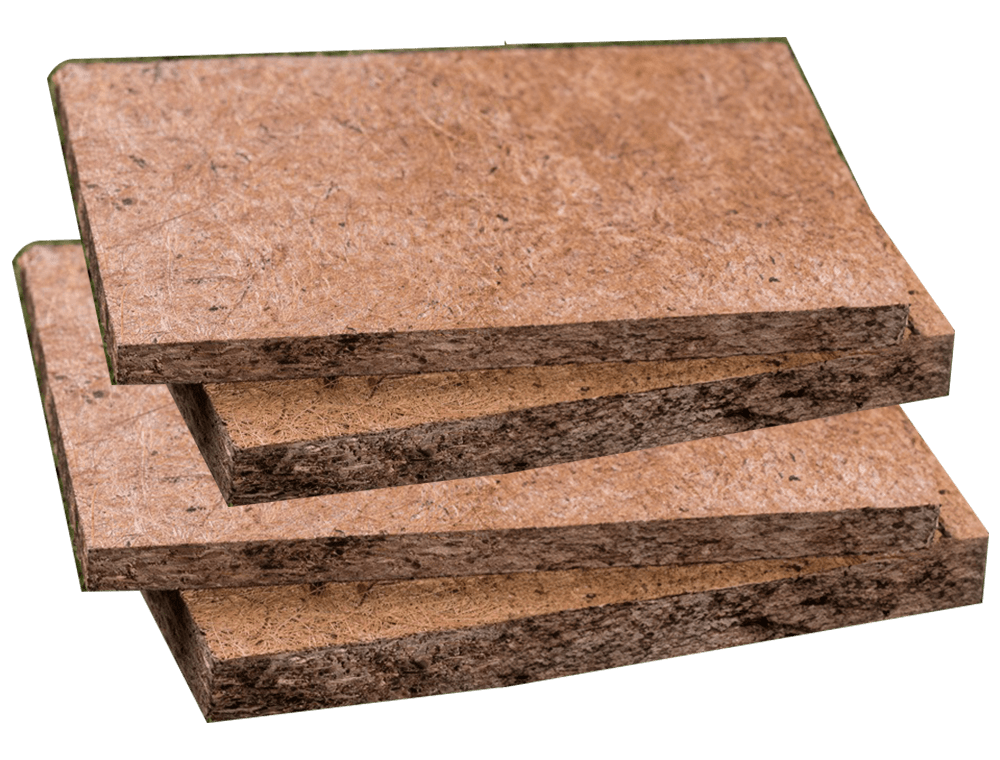Thermal Insulation

What is Thermal Insulation?
Thermal insulation is the process of limiting heat transfer between indoor and outdoor spaces. It helps maintain comfortable interior temperatures by preventing unwanted heat gain in summer and heat loss in winter. Effective insulation is a key factor in sustainable building design, offering long-term performance, energy savings, and enhanced occupant comfort.
Key Performance Parameters
R-Value
Fire Resistance
Thermal Stability
Density
Moisture Resistance
Thermal Conductivity (λ)

Uses of Coir-Based Thermal Insulation Solutions
-
Roof & CeilingReduces heat ingress, keeping interiors cooler in hot climates and reducing air conditioning loads.
-
Wall CavitiesInstalled inside walls to maintain stable indoor temperatures and improve thermal comfort.
-
FlooringActs as a barrier between the ground and floor, enhancing warmth and energy savings in colder areas.
-
Attics & LoftsLightweight coir panels are ideal for regulating temperature in attic spaces year-round.
-
Industrial & Prefab StructuresProvides reliable thermal protection for modular buildings, containers, and equipment enclosures.
Technical Specification
|
Property
|
Unit
|
Typical Value/Range
|
Notes
|
|---|---|---|---|
|
Thermal Conductivity
|
W/m·K
|
0.041 – 1.393
|
Varies by form, thickness, and composite type
|
|
Heat Transfer Rate
|
W
|
80.52 – 134.21
|
Depends on insulation thickness
|
|
Density
|
kg/m³
|
65 – 1350
|
Higher density increases conductivity
|
|
Thermal Resistance (R-value)
|
m²·K/W
|
2.52
|
At 65 kg/m³, 0.08 m thickness
|
|
Thickness
|
m
|
0.005 – 0.015
|
Typical tested range
|
|
Moisture Resistance
|
-
|
Good
|
Maintains insulation in humid environments
|
|
Lignin Content
|
%
|
41 – 45
|
Adds durability and rot resistance
|
|
Cellulose Content
|
%
|
36 – 43
|
Natural fiber component
|
|
Mechanical Strength (Toughness)
|
MPa
|
21.5
|
High among natural fibers
|
Why Choose Coir for Thermal Insulation?

Eco-Friendly

Fire-Resistant

Moisture Resistant
Moisture-resistant insulation that prevents mold and improves air quality.

Durable & Lightweight
Why Choose Coir for Thermal Insulation?

Eco-Friendly
Crafted from renewable coconut husk fibers, our insulation is biodegradable and eco-friendly offering a sustainable solution that minimizes environmental impact while delivering superior performance for modern green buildings.

Fire-Resistant

Moisture & Mold Resistant

Durable & Lightweight
Ready to Build with Smarter Insulation?
Connect with us to discover how EVA Fiberz’s coir insulation enhances sustainable building performance.
Natural Performance
Eco-Friendly Choice
Coconut Fiber Thermal Insulation
Coconut fiber, or coir, is revolutionizing the insulation industry with its natural ability to regulate temperature, resist moisture, and reduce environmental impact. Extracted from the husk of coconuts, this renewable resource offers a sustainable alternative to synthetic insulation materials. With excellent thermal resistance, durability, and biodegradability, coconut fiber insulation is an ideal choice for eco-conscious construction—balancing performance with planet-friendly innovation.
Key Benefits of Coconut Fiber Insulation
Thermal Performance
With a thermal conductivity range of just 0.04 to 0.0522 W/m·K, coconut fiber naturally resists heat flow. It helps regulate indoor temperatures by minimizing heat transfer, keeping interiors cooler in hot weather and warmer in cold climates.
Superior R-Value
Coconut fiber delivers a comparatively high R-value, meaning it effectively slows down heat movement. When installed correctly, it performs competitively with many conventional materials—offering excellent thermal resistance with the added benefit of sustainability.
Built-in Moisture Resistance
Thanks to its natural structure, coconut fiber is resistant to moisture—a key factor that helps maintain insulation efficiency even in humid or wet conditions. Unlike many synthetic materials, coir doesn’t degrade easily when exposed to moisture.
Eco-Friendly by Nature
Made from the husk of coconuts, this insulation material is 100% biodegradable and renewable. Choosing coconut fiber supports sustainable building practices and reduces environmental impact compared to petroleum-based insulators.
Applications of Coconut Fiber Acoustics
Versatile Installation Options
Energy Efficiency Boost
By significantly reducing cooling and heating loads, coconut fiber insulation can cut energy consumption and improve indoor comfort—especially in tropical regions where temperature control is a daily challenge.
Ideal for Green Buildings
Coconut fiber in composite panels boosts insulation performance and reduces carbon footprints, making it ideal for eco-conscious architects pursuing sustainable design and green building certifications.
